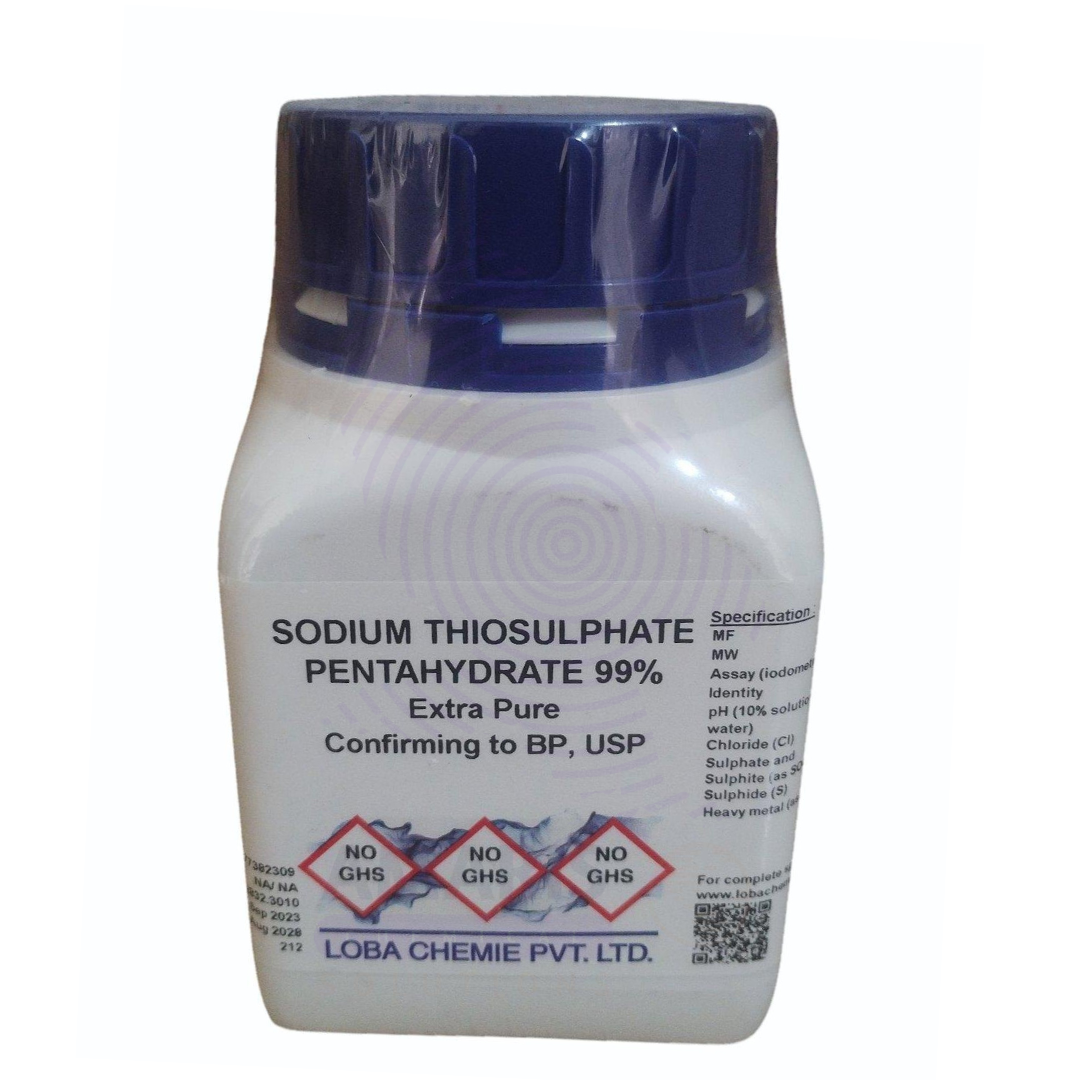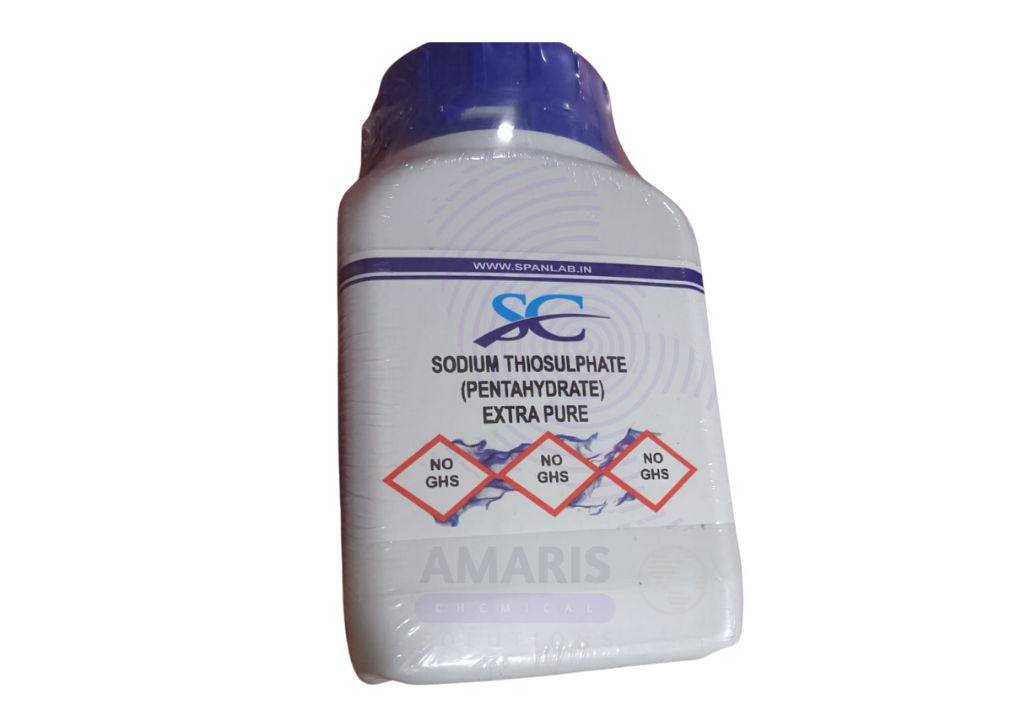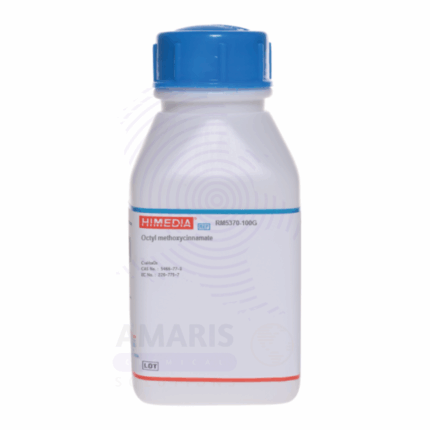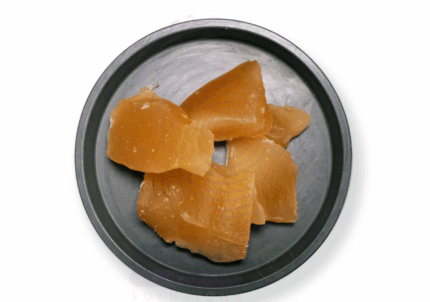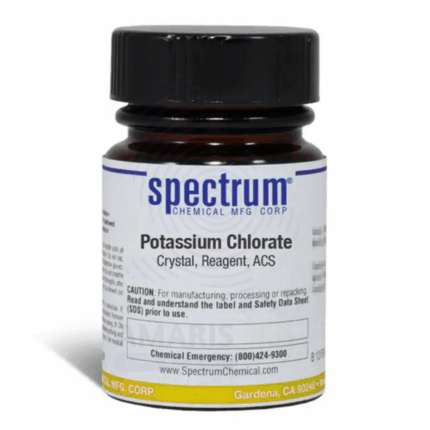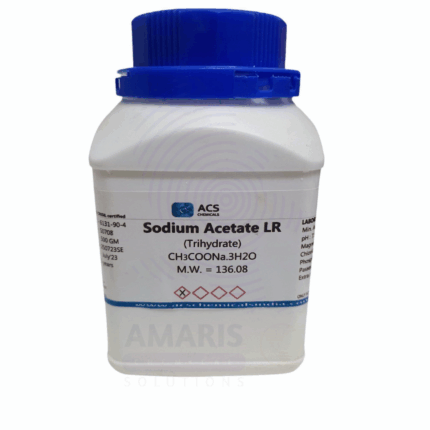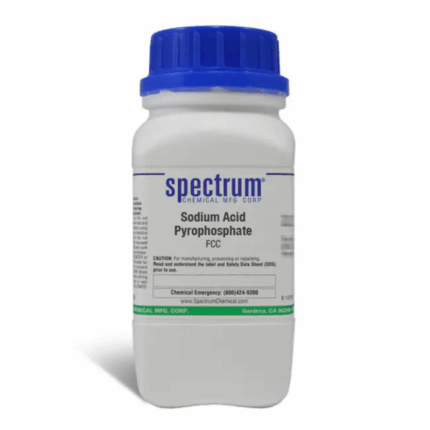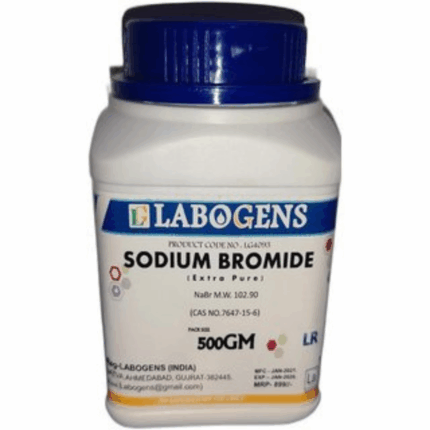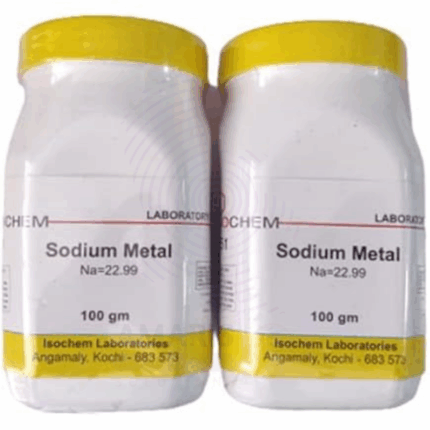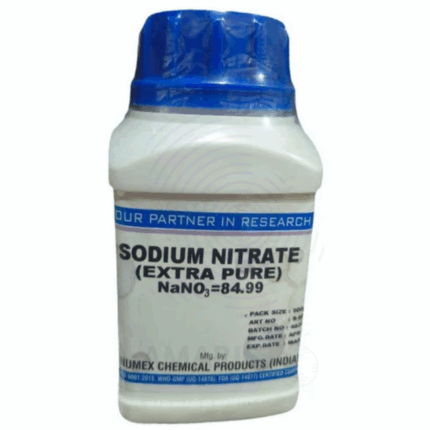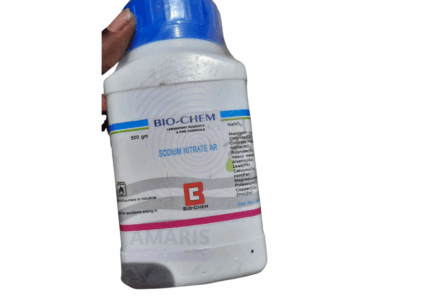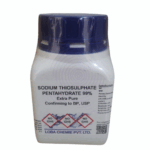
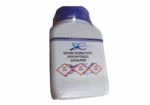
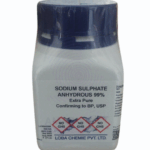
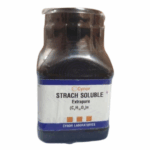
Sodium Thiosulphate Pentahydrate Extra Pure
$ 18.00 Original price was: $ 18.00.$ 17.89Current price is: $ 17.89.
Sodium Thiosulphate Pentahydrate Extra Pure is a white, crystalline, odorless compound widely used in laboratories and industry as a reducing agent, titrant, and water dechlorination chemical. It plays a vital role in photographic fixing, water treatment, and pharmaceutical antidotes for cyanide poisoning. This Extra Pure grade ensures high quality and reliability for analytical, pharmaceutical, and industrial applications. It must be stored in a dry, cool environment away from acids and oxidizers and handled with appropriate personal protective equipment to avoid irritation.
Sodium Thiosulphate Pentahydrate Extra Pure
PRIMARY USES
- Analytical Reagent & Laboratory Applications:
Commonly used as a titrant in iodometry and other redox titrations
• Acts as a reducing agent in various chemical reactions
• Used to neutralize chlorine in water treatment and laboratory procedures - Photography:
Utilized as a fixer in photographic processing to dissolve unexposed silver halides - Water Treatment:
Used to dechlorinate water and remove excess halogens
• Helps neutralize chlorine and bromine residues in swimming pools and industrial water systems - Pharmaceutical Industry:
Used as an antidote for cyanide poisoning in combination with other agents
• Acts as a sulfur donor in medical treatments
SECONDARY USES
- Textile Industry:
Employed in dyeing and bleaching processes to reduce color impurities - Paper Industry:
Used in pulping and bleaching to improve paper quality - Environmental Applications:
Used in wastewater treatment to remove heavy metals and disinfectants
1. Basic Identification Attributes
- Chemical Name: Sodium Thiosulphate Pentahydrate
• CAS Number: 10102-17-7
• HS Code: 2832.30.00
• Molecular Formula: Na₂S₂O₃·5H₂O
• Synonyms:
- Sodium hyposulfite pentahydrate
- Hypo (photography)
2. Physical & Chemical Properties
- Physical State: Crystalline solid, pentahydrate
• Color & Odor: White, odorless
• Melting Point: 48 °C (loses water of crystallization)
• Boiling Point: Decomposes upon heating
• Density: Approximately 1.7 g/cm³
• Solubility: - Highly soluble in water
- Insoluble in ethanol
• pH Level: Slightly alkaline (~9 for 0.1 M solution)
• Vapor Pressure: Negligible
• Flash Point: Not flammable
3. Safety & Hazard Attributes
Hazard Class (GHS Classification):
- Generally considered low hazard; may cause mild skin or eye irritation
• NFPA Ratings: - Health: 1
- Flammability: 0
- Reactivity: 0
• Exposure Limits: - No specific OSHA PEL or ACGIH TLV established
• Reactivity: - Stable under normal conditions
- Avoid contact with strong oxidizers
4. Storage & Handling Attributes
Storage Conditions:
- Store in a cool, dry, well-ventilated area
- Keep container tightly closed
• Incompatible Materials: - Strong acids and oxidizers
• Container Type: - Plastic or glass containers recommended
• Shelf Life: - Stable for several years if stored properly
• Special Handling Requirements: - Use gloves and eye protection
- Avoid inhalation of dust
5. Regulatory & Compliance Attributes
Regulatory Status:
- Approved for pharmaceutical and laboratory use (USP)
- Listed under REACH, OSHA, and EPA inventories
• Transportation Restrictions: - Not classified as hazardous for transport
• Waste Disposal Method: - Dispose in accordance with local environmental regulations
6. Environmental & Health Impact
Ecotoxicity:
- Low toxicity to aquatic life
• Persistence in Environment: - Biodegradable and readily breaks down in water
• Carcinogenicity/Mutagenicity: - Not classified as carcinogenic or mutagenic
• Biodegradability: - Readily biodegradable
SAFETY PRECAUTIONS
Personal Protective Equipment (PPE):
• Wear chemical-resistant gloves
• Use safety goggles or face shield
• Wear protective clothing
• Use dust mask if handling powder form
Handling:
• Handle in well-ventilated area
• Avoid contact with skin and eyes
• Do not breathe dust
• Wash hands after handling
Storage:
• Store in tightly sealed container
• Keep away from moisture, acids, and oxidizers
FIRST AID MEASURES
Inhalation:
• Move to fresh air immediately
• Seek medical attention if irritation develops
Skin Contact:
• Wash skin with soap and water
• Remove contaminated clothing
• Seek medical advice if irritation occurs
Eye Contact:
• Rinse eyes thoroughly with water for at least 15 minutes
• Seek medical attention if irritation persists
Ingestion:
• Rinse mouth with water
• Seek medical advice if symptoms appear
FIRE FIGHTING MEASURES
Flammability:
• Non-flammable
Extinguishing Media:
• Use water spray, foam, dry chemical, or CO₂ extinguisher
Hazardous Combustion Products:
• May release sulfur oxides when heated to decomposition
Firefighter Protection:
• Wear full protective gear and self-contained breathing apparatus (SCBA)


 Preservatives(food)
Preservatives(food) Flavor Enhancers
Flavor Enhancers Acidulants
Acidulants Sweeteners
Sweeteners Antioxidants
Antioxidants Colorants(food)
Colorants(food) Nutraceutical Ingredients (food)
Nutraceutical Ingredients (food) Nutrient Supplements
Nutrient Supplements Emulsifiers
Emulsifiers
 Collectors
Collectors Dust Suppressants
Dust Suppressants Explosives and Blasting Agents
Explosives and Blasting Agents Flocculants and Coagulants
Flocculants and Coagulants Frothers
Frothers Leaching Agents
Leaching Agents pH Modifiers
pH Modifiers Precious Metal Extraction Agents
Precious Metal Extraction Agents
 Antioxidants(plastic)
Antioxidants(plastic) Colorants (Pigments, Dyes)
Colorants (Pigments, Dyes) Fillers and Reinforcements
Fillers and Reinforcements Flame Retardants
Flame Retardants Monomers
Monomers Plasticizers
Plasticizers Polymerization Initiators
Polymerization Initiators Stabilizers (UV, Heat)
Stabilizers (UV, Heat)
 Antifoaming Agents
Antifoaming Agents Chelating Agents
Chelating Agents Coagulants and Flocculants
Coagulants and Flocculants Corrosion Inhibitors
Corrosion Inhibitors Disinfectants and Biocides
Disinfectants and Biocides Oxidizing Agents
Oxidizing Agents pH Adjusters
pH Adjusters Scale Inhibitors( water)
Scale Inhibitors( water)
 Antioxidants(cosmetic)
Antioxidants(cosmetic) Emollients
Emollients Fragrances and Essential Oils
Fragrances and Essential Oils Humectants
Humectants Preservatives
Preservatives Surfactants(cosmetic)
Surfactants(cosmetic) Thickeners
Thickeners UV Filters
UV Filters
 Fertilizers
Fertilizers Soil Conditioners
Soil Conditioners Plant Growth Regulators
Plant Growth Regulators Animal Feed Additives
Animal Feed Additives Biostimulants
Biostimulants Pesticides (Herbicides, Insecticides, Fungicides)
Pesticides (Herbicides, Insecticides, Fungicides)
 Active Pharmaceutical Ingredients (APIs)
Active Pharmaceutical Ingredients (APIs) Excipients
Excipients Solvents(pharmaceutical)
Solvents(pharmaceutical) Antibiotics
Antibiotics Antiseptics and Disinfectants
Antiseptics and Disinfectants Vaccine Adjuvants
Vaccine Adjuvants Nutraceutical Ingredients (pharmaceutical)
Nutraceutical Ingredients (pharmaceutical) Analgesics & Antipyretics
Analgesics & Antipyretics
 Analytical Reagents
Analytical Reagents Solvents(lab)
Solvents(lab) Chromatography Chemicals
Chromatography Chemicals Spectroscopy Reagents
Spectroscopy Reagents microbiology-and-cell-culture-reagents
microbiology-and-cell-culture-reagents Molecular Biology Reagents
Molecular Biology Reagents Biochemical Reagents
Biochemical Reagents Inorganic and Organic Standards
Inorganic and Organic Standards Laboratory Safety Chemicals
Laboratory Safety Chemicals Specialty Laboratory Chemicals(Special Laboratory Equipment)
Specialty Laboratory Chemicals(Special Laboratory Equipment)
 Demulsifiers
Demulsifiers Hydraulic Fracturing Fluids
Hydraulic Fracturing Fluids Scale Inhibitors(oil)
Scale Inhibitors(oil) Surfactants(oil)
Surfactants(oil) Drilling Fluids
Drilling Fluids
 Dyes and Pigments
Dyes and Pigments Bleaching Agents
Bleaching Agents Softening Agents
Softening Agents Finishing Agents
Finishing Agents Antistatic Agents
Antistatic Agents
 Admixtures
Admixtures Waterproofing Agents
Waterproofing Agents Sealants and Adhesives
Sealants and Adhesives Curing Compounds
Curing Compounds Concrete Repair Chemicals
Concrete Repair Chemicals Anti-Corrosion Coatings
Anti-Corrosion Coatings
 Surfactants(cleaning)
Surfactants(cleaning) Builders
Builders Enzymes
Enzymes Solvents (Cleaning)
Solvents (Cleaning) Fragrances
Fragrances
 Electronic Chemicals
Electronic Chemicals Catalysts
Catalysts Lubricants
Lubricants Photographic Chemicals
Photographic Chemicals Refrigerants
Refrigerants Automotive chemicals
Automotive chemicals Pyrotechnic Chemicals
Pyrotechnic Chemicals
 Biodegradable Surfactants
Biodegradable Surfactants Bio-based Solvents
Bio-based Solvents Renewable Polymers
Renewable Polymers Carbon Capture Chemicals
Carbon Capture Chemicals Wastewater Treatment Chemicals
Wastewater Treatment Chemicals
 Pigments
Pigments Solvents(paint)
Solvents(paint) Specialty Coatings
Specialty Coatings Binders/Resins
Binders/Resins Additives
Additives Driers
Driers Anti-Corrosion Agents
Anti-Corrosion Agents Functional Coatings
Functional Coatings Application-Specific Coatings
Application-Specific Coatings
 Leavening Agents
Leavening Agents Dough Conditioners
Dough Conditioners Flour Treatments
Flour Treatments Fat Replacers
Fat Replacers Decoratives
Decoratives Preservatives(baking)
Preservatives(baking)
 Plasticizers & Softeners
Plasticizers & Softeners Reinforcing Agents
Reinforcing Agents Adhesion Promoters
Adhesion Promoters Vulcanizing Agents
Vulcanizing Agents Antidegradants
Antidegradants Blowing Agents
Blowing Agents Fillers & Extenders
Fillers & Extenders Accelerators & Retarders
Accelerators & Retarders